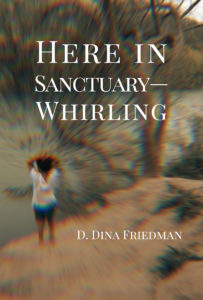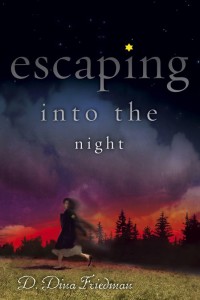 Today my mother turns 90!
Today my mother turns 90!
While I have many reasons to be grateful in my life, one of my biggest sources of gratitude is having healthy parents who are still enjoying and making the most of their later years. My mom–and my dad, who is 92–are cultural aficionados. They love going to Carnegie Hall and Broadway. In fact, often when I announce my plans to come into New York, they search for tickets to something they think I would enjoy. In their eyes, tickets are one of the best forms of showing love.
The COVID years were hard for them. “It’s like jail!” my father would grumble. But as vaccinations have become abundant and restrictions have relaxed, they’re out in the world again.

© Jorge Royan / http://www.royan.com.ar
How do they get to Carnegie Hall? I know you’re thinking–practice! But they’ve paid their family musical dues and don’t need to practice any more. They take the subway–about a 30-minute ride. That they’re still able to do this is a wonderful privilege for people in their 90s, but when I mention it my mother looks confused. How else would we get there? she asks.
When I wrote my memoir, Imperfect Pitch, about the generational baggage of coming from a family of musicians and my struggle to meet what I perceived as a family expectation to be the next in a line of musical “prodigies,” I was pretty nervous about sharing the book with my parents. Not everything in the book I wrote about them was complimentary (LOL). But I realized, as I delved into the material, that they were just as much victims of the generational expectations as perpetrators. Like me, my parents both played music through high school, but didn’t have the ability–or (unlike me) the desire–to play professionally. And also unlike me, both of them accepted their limitations and went on with their lives, getting their “musical fixes” at Carnegie Hall, rather than from their own playing.
While I had a much harder time letting myself off the hook for not being able to play better than I could, I also moved on to my own life, spilling my creative passions into writing. But in 2020, my way of dealing with “COVID jail” was to return to the piano bench–tentatively at first, with a lot of finger stumbles and tears–and now, with a fluidity that pleases me. Even if I’m never going to win accolades for performing music, I’m happy to spend around 30 minutes every evening (the same amount of time it takes my parents to get to Carnegie Hall) to play for an audience of one–me! This is another thing that I’m profoundly grateful for.
And a final note of gratitude: when my parents did read my book, my mother said, I think this book will be very helpful to people in our family. We’ve gone through many birthdays together, and seen many shows at Carnegie Hall, but of all the gifts I’ve received, this affirmation is the one I cherish the most.
Happy birthday, Mom!
Subscribe at ddinafriedman.substack.com

 So this week, I’m feeling myself floundering as I try to get all the pieces in place for a perfect birthday party.
So this week, I’m feeling myself floundering as I try to get all the pieces in place for a perfect birthday party.
 mesmerized at the purple hues of the sky reflected in the ocean, the sound of the waves, the gulls strutting around in the sand.
mesmerized at the purple hues of the sky reflected in the ocean, the sound of the waves, the gulls strutting around in the sand.  Hopefully, if I’m ever plagued by dementia, I’ll be able to pull up that inner reservoir of abandoning the zero-sum game and simply enjoy whatever the moment has to offer me.
Hopefully, if I’m ever plagued by dementia, I’ll be able to pull up that inner reservoir of abandoning the zero-sum game and simply enjoy whatever the moment has to offer me.